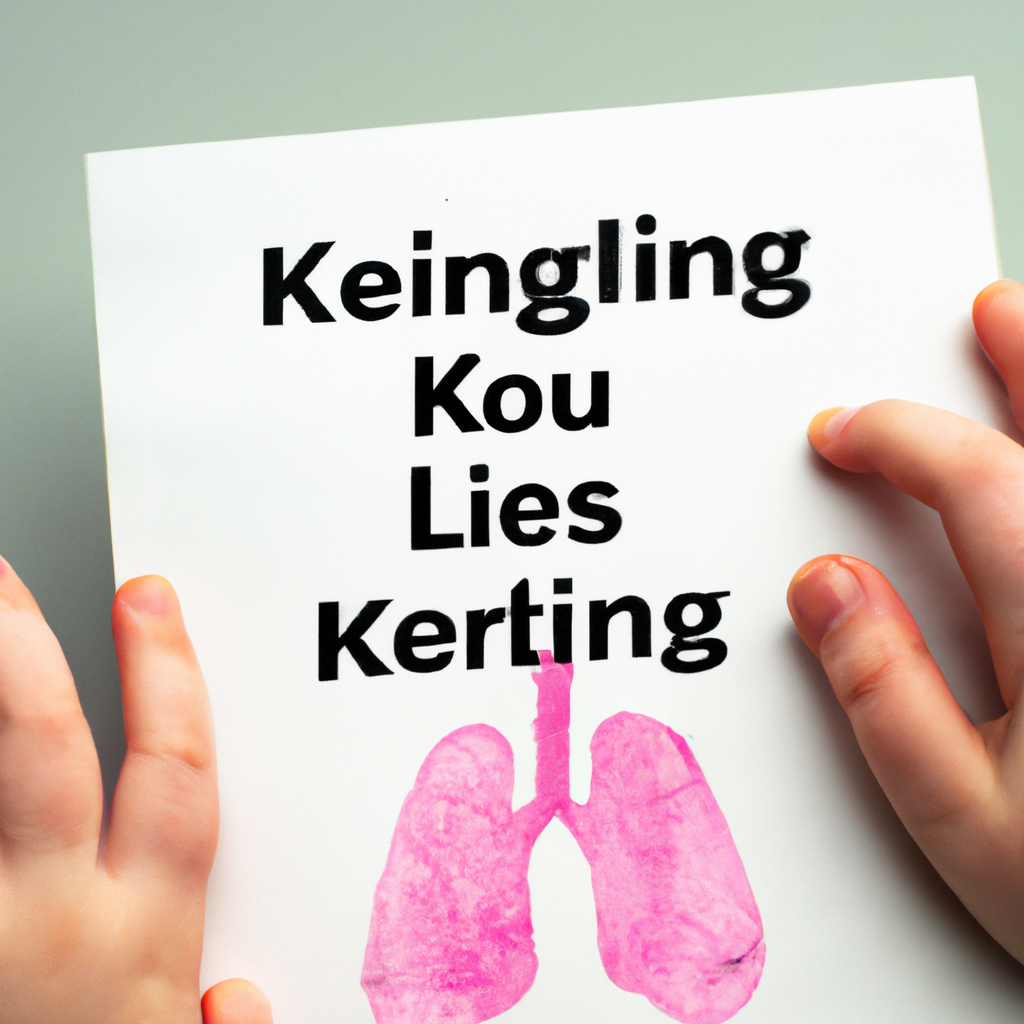When it comes to keeping our children healthy, it’s important not to overlook the importance of respiratory health. Taking steps to ensure that young lungs are kept strong and healthy is essential in creating and preserving healthy lungs for the future. This article provides an overview of the common issues associated with lung health in children, and strategies for keeping young lungs healthy.
1. Nourishing Young Lungs: A Guide to Healthy Respiratory Health for Kids
Ensuring young lungs are healthy is paramount for setting up your child for a healthy and happy life. With the right precautions, dietary changes and adequate sleep, you can keep your child’s respiratory health in tip-top form.
Rest: It goes without saying that rest is essential to a healthy lifestyle. Studies have proven that young people who are lacking in sleep can suffer from severe respiratory health issues. Encourage a regular sleeping pattern and provide adequate rest times throughout the day and night. Additionally, ensure there are plenty of quiet, comfortable environments in your home for rest.
Diet: A balanced and nutritious diet is the foundation for good respiratory health. Foods like fruits and vegetables provide essential minerals that help strengthen the respiratory system, whereas artificial foods can weaken the lungs in the long run. Encourage your kids to include them in their diets, while opting for healthier alternatives to fat and sugar.
Kids will also benefit from learning how to protect their lungs from environmental irritants. For instance, different air pollutants and indoor cleaning products can negatively affect the respiratory system. Make sure your home is free from these contaminants. You can do this by:
- Cleaning frequently with green products
- Opening windows to allow fresh air in
- Having an air purifier
Finally, try making physical activities a family affair; exercise not only promotes respiratory health but also improves overall mood. Apart from outdoor activities, you could also use this as an opportunity to teach kids about relaxation techniques like meditation and breathing exercises, which will help them learn how to manage their emotions.
2. A Breath of Fresh Air: Health Benefits of Cleaner Air for Children
The health benefits of cleaner air are clear, especially for children. After all, kids don’t always have the best habits when it comes to protecting themselves from air pollution. Given the dependency of children on their environment, they are particularly vulnerable to the dangers of air pollution, the effects of which can raid havoc on their respiratory and cardiovascular systems, stunt their growth, and spread other diseases.
Fortunately, a fresh breath of clean air can bring may positive health benefits. In fact, studies have revealed that greater air quality helps children breathe and grow better. This means a decrease in the rate of premature births, respiratory illnesses, and an improved standard of growth.
Moreover, the positive effects of cleaner air extend even beyond the body. A recent study has found that better air quality can even boost children’s cognitive development. It has been linked to improvements in their concentration abilities, overall performance, and even reduces the risk of dementia and Alzheimer’s as these kids age.
When it comes to living a healthy lifestyle, here are some key ways to make sure your little one(s) are breathing fresh air:
- Limit their time spent outdoors when air pollution is at its highest
- Encourage your children to partake in physical activities indoors or in more rural areas
- Monitor their diet – foods high in antioxidants can improve their bodies’ defenses against air pollution
- Shower or change clothes immediately after outdoor activities
With these strategies, you can help your children live a healthier life and have access to cleaner air.
3. Breath Work: How to Foster Good Respiratory Habits in Your Kids
Nowadays, healthy habits implement since childhood is the key to raising respectful, successful and mindful adults. Teaching kids about their breathing’s importance can have numerous valuable benefits.
Fun and Engaging: For young children, it can be inconvenient to encourage healthy breathing habits. The way to turn this into something fun and engaging is to start by introducing simple breathing exercises. Make them seem exciting and creative, and as kids start doing them more and more, they will naturally come to know about the helpfulness of breathing exercises.
- Sing a song while breathing deeply
- Use toys, hide, and seek or bubbles to teach calm, steady inhales and exhales
- Race when taking deep breaths, using their bellies to move the air
Learning Opportunities: Viewing each breathing exercise as a learning opportunity can be extremely helpful. Explain to them why their breathing is important and what effects it has on their overall mental and physical well-being. Show them studies and discuss with them why it is important to take deep breaths and why it is not okay to hold their breath for a very long time.
Caring for their Bodies: It is also crucial for kids to understand that all their activities must be fueled by steady breathing. With this notion, you can demonstrate to them how they can practice their breathing techniques when exercising, studying, eating and playing. It is valuable for kids to acknowledge that breathing well is part of taking care of their bodies.
4. Lung Power: Supporting Youngsters to Develop Healthy Respiratory Systems
Children who learn healthy respiratory habits in early years can gain lifelong benefits to their health. The right steps can strengthen the lungs and enhance a youngster’s respiratory system, which can then be carried into adulthood. Here are four tips to help support young ones’ respiratory fitness:
- Encourage Exercise: Regular physical activity strengthens both cardiovascular and respiratory muscles, encouraging airflow. Even mild exercise can lead to better oxygenation and faster recovery times.
Promote Smoke-Free Zones: Second-hand smoke has been linked to childhood respiratory problems. Avoiding cigarette smoke as much as possible and setting up smoke-free zones can significantly help protect their respiratory system. - Teach Proper Respiratory Hygiene: Encouraging youngsters to learn proper coughing, sneezing and nose-blowing techniques can reduce the spread of germs and keep them healthy. Remind the kids to cover their mouths with their arms or a tissue to contain respiratory droplets when coughing and sneezing.
- Adapt the Environment: The environment plays a significant part in respiratory health. Keeping the air free of dust, irritants and pollutants can help the little lungs grow and develop. Controlling temperature and humidity levels can help improve year-round respiratory wellbeing.
Arming kids with the knowledge and tools to maintain good respiratory health can help them develop healthy habits they can sustain into adulthood. Encouraging them to learn and practice preventative habits early can give them a lifelong sense of empowerment as they take responsibility for their own respiratory health.
From the environment to genetics, there are many things that can affect the respiratory health of a child. By being aware of the potential issues and taking proper care of their lungs, parents can help their children maintain healthy breathing for life. A healthy respiratory system in childhood is an essential tool for helping the next generation grow and thrive!



